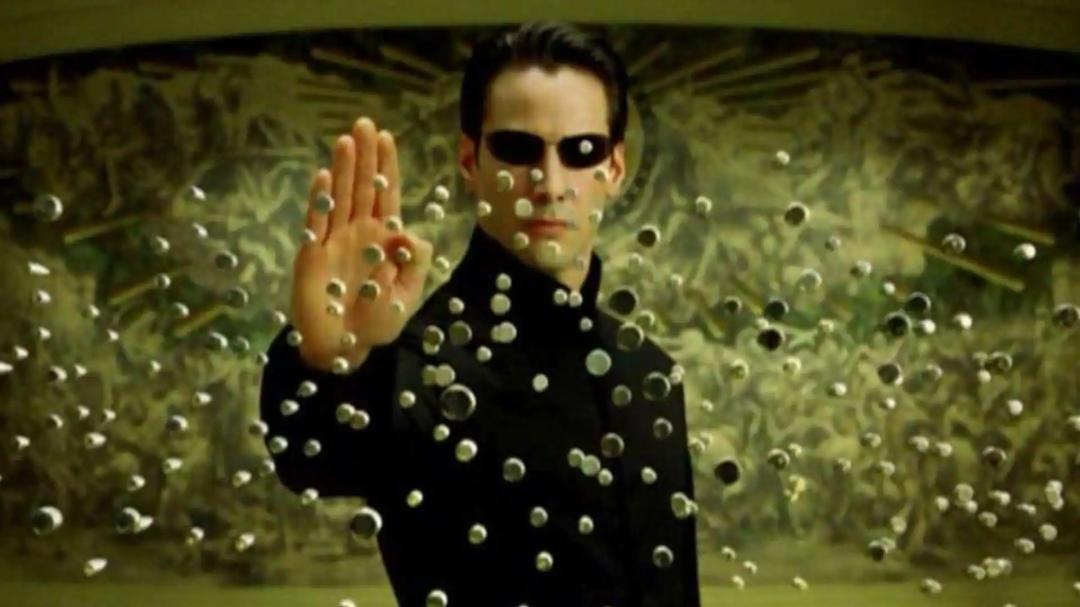
Physicists prove universe isn’t a computer simulation like in ‘The Matrix’
The idea that our universe is a computer simulation, popularized by the iconic movie “The Matrix,” has been a topic of debate among physicists and philosophers for years. The concept, also known as the “Simulation Hypothesis,” suggests that our reality is a complex simulation created by a more advanced civilization. However, a recent study by physicists from the University of British Columbia Okanagan (UBCO) has mathematically proven that this idea is unlikely to be true.
According to a press release, the researchers have shown that the universe is not a computer simulation, but rather it is built on “a type of understanding that exists beyond the reach of any algorithm.” This finding is based on the concept that the fundamental laws of physics cannot be contained within space and time, because they generate them. In other words, the laws of physics are not bound by the same rules that govern the behavior of objects within the universe.
The study’s co-author explained that the idea of a simulated universe is based on the assumption that the laws of physics can be reduced to a set of algorithms, which can be run on a computer. However, the researchers found that this assumption is flawed, as the laws of physics are not algorithmic in nature. “Fundamental laws of physics cannot be contained within space and time, because they generate them,” the co-author said.
This finding has significant implications for our understanding of the universe and its underlying laws. It suggests that the universe is not a machine that can be reduced to a set of rules and algorithms, but rather it is a complex and dynamic system that is governed by laws that are beyond our current understanding.
The Simulation Hypothesis has been a topic of debate among physicists and philosophers for years, with some arguing that it is a plausible explanation for the nature of reality. However, the new study provides strong evidence against this idea, suggesting that the universe is not a simulation, but rather a complex and dynamic system that is governed by laws that are beyond our current understanding.
The researchers used mathematical models to demonstrate that the laws of physics cannot be reduced to a set of algorithms. They showed that the laws of physics are not discrete, but rather they are continuous, and they cannot be approximated by a finite set of rules. This finding is consistent with the idea that the universe is not a machine that can be reduced to a set of rules and algorithms, but rather it is a complex and dynamic system that is governed by laws that are beyond our current understanding.
The study’s findings have significant implications for the field of physics and our understanding of the universe. It suggests that the universe is not a simulation, but rather a complex and dynamic system that is governed by laws that are beyond our current understanding. The researchers’ findings also provide a new perspective on the nature of reality, suggesting that the universe is not a machine that can be reduced to a set of rules and algorithms, but rather it is a complex and dynamic system that is governed by laws that are beyond our current understanding.
The idea that the universe is not a simulation is not a new concept, but the new study provides strong evidence against the Simulation Hypothesis. The researchers’ findings are based on mathematical models and are consistent with our current understanding of the laws of physics. The study’s findings also provide a new perspective on the nature of reality, suggesting that the universe is a complex and dynamic system that is governed by laws that are beyond our current understanding.
In conclusion, the new study by physicists from UBCO provides strong evidence against the Simulation Hypothesis, suggesting that the universe is not a computer simulation, but rather a complex and dynamic system that is governed by laws that are beyond our current understanding. The study’s findings have significant implications for the field of physics and our understanding of the universe, and they provide a new perspective on the nature of reality.
The researchers’ findings are based on mathematical models and are consistent with our current understanding of the laws of physics. The study’s findings also provide a new perspective on the nature of reality, suggesting that the universe is not a machine that can be reduced to a set of rules and algorithms, but rather it is a complex and dynamic system that is governed by laws that are beyond our current understanding.
The study’s co-author said that the idea of a simulated universe is an interesting concept, but it is not supported by the evidence. “Fundamental laws of physics cannot be contained within space and time, because they generate them,” the co-author said. The researchers’ findings provide strong evidence against the Simulation Hypothesis, and they suggest that the universe is a complex and dynamic system that is governed by laws that are beyond our current understanding.
In the end, the new study by physicists from UBCO provides a new perspective on the nature of reality, suggesting that the universe is not a simulation, but rather a complex and dynamic system that is governed by laws that are beyond our current understanding. The study’s findings have significant implications for the field of physics and our understanding of the universe, and they provide a new perspective on the nature of reality.






